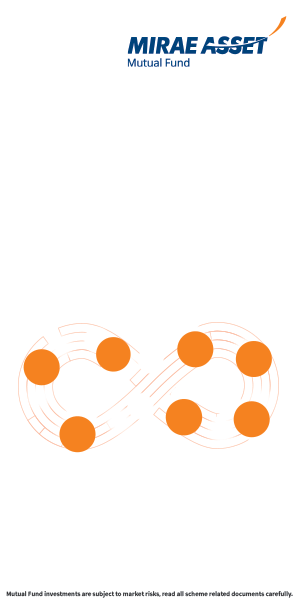Saving is keeping money aside from your income so as not to spend it
Financial Advisors Interview

Yogin Sabnis is a CFP and the MD & CEO of VSK Financial Consultancy Services, Mumbai. Personal finance being an area of passion, he has gathered 26 years of rich experience in the financial advisory business.
He helps people achieve financial goals in a planned manner by taking a holistic view of their finances. This process involves preparation, execution and implementation of the financial plan. His client centric approach and keeping in touch with them regularly has won him most financial planning clients through referrals.
Yogin Sabnis is also managing the asset advisory business of VSK Financial Consultancy Services. He specializes in prescribing asset allocation strategies to clients based on their age, personal background and financial goals. This includes investment portfolio structuring, tracking and rebalancing.
A strong believer in financial literacy, Yogin Sabnis is an active blogger and extensively writes on personal finance topics to educate his clients. He has also been quoted in Economic Times Wealth Edition and Café Mutual – a meeting platform for all mutual fund professionals. He regularly contributes articles for MD Current, a website for Indian physicians, guiding them on money matters.
What are the common investing patterns that you have observed among the clients when you meet them?
It depends whether the potential client has had investment experience prior to meeting us or not. The former typically would have investments in Mutual Funds and/or direct stocks, some ULIPs and other insurance policies but not in any structured manner. Those with little or no experience would prefer Bank Deposits or postal savings or worse some have even kept the money idle in savings bank accounts.
What are your tips for being a satisfied investor?
Satisfaction would be based on expectations. If the expectations are to become rich overnight, it can never be fulfilled. We work with clients to create expectations based on their financial goals, their risk tolerance and their investment capacity.
For most of us investing and saving is same. What is the relation between saving and investment? How much should a client save before investing?
Obviously both are not the same. Saving is keeping money aside from your income so as not to spend it. Investing is actively deploying this money for better returns. Create a contingency fund, which can be equivalent to 3 to 6 months of your household expenses (including loan EMIs and insurance premiums and a corpus for medical emergencies, if necessary), then the rest of the amount should be invested.
Does tax planning need to be a part of investment plan?
Yes but the reverse is not true. What I mean is that investment schemes should not be bought just because they provide tax benefits. While buying investments, you should consider your financial goals, cash flow requirements and the objective of the scheme you are buying. If in the process you get tax benefits it’s a nice extra.
How important is to have a life insurance plan? What kind of insurance should investors take?
You carefully create an investment plan to cater to your future needs then save and invest actively and assume you will continue to do so for a no. of years so that your kids will be able to have that higher education; and, you and your spouse will have that comfortable retirement. Consider for a moment that somewhere in between you are no more. The needs of your family remain but the resource provided by your income no longer exists. What can make up for this gaping hole in finances? This is the role of insurance. If you are honest to yourself and actually calculate the amount required should such an eventuality occur, you will realize that the insurance cover required is quite substantial and you can only afford to buy if the scheme is a term insurance without any investment element.
What is the need for having a health insurance if an investor has life insurance?
Too obvious. Life insurance covers death. Health insurance covers illness and is also an essential part of financial planning because medical care nowadays create a big dent in your finances and play havoc with your carefully laid financial plan.
Should retail investors invest in shares and stocks? How risky is it?
The world has become a global village. Some development happening in another corner of the world may affect the fortunes of a company whose shares you hold. Even if you have the expertise (which majority of us don’t have), you will not have the time to track these things. Mutual Fund managers are there for this purpose and all things considered they are doing a decent job of it.
How many clients do you manage under your umbrella?
As retail advisor of old repute, we had more than a thousand customers who would do their investing through us. Now, we advise and manage finances of around 50 clients.
How do you differentiate yourself from other advisors?
We are not really aware of how the other advisors function but I am sure as conscientious people they would be doing a decent job. Speaking about ourselves, it’s all about understanding the client; his goals and aspirations, his fears and attitude towards money and his risk tolerance. When we interact with clients we are sitting on the same side of the table with them, figuratively speaking. All our processes are systematized which allows us a lot of time to focus on our clients.
Your advice to investors..
- Save regularly and invest diligently.
- Know your asset allocation and stick to it. Do not be swayed by “once in a life time opportunity” investments offered by various financial intermediaries.
- Have a contingency fund
- Purchase adequate life insurance
- Purchase adequate health insurance even though you and your family may be covered by your employer (this is for your retirement time when neither your employer will cover you, nor any company will be willing to provide you fresh insurance).
- To do this well you will require professional services of a financial advisor so lastly engage a Financial Advisor who will advise you on all aspects of your financial life.
Recent Interviews
Fund News
-
Axis Mutual Fund joins ONDC Network to Expand Access to Mutual Fund Investments
Apr 18, 2025 by Axis Mutual Fund
-
Nippon India Mutual Fund launches Nippon India Nifty 500 Quality 50 Index Fund
Apr 18, 2025 by Advisorkhoj Team
-
Nippon India Mutual Fund launches Nippon India Nifty 500 Low Volatility 50 Index Fund
Apr 18, 2025 by Advisorkhoj Team
-
RBI Monetary Policy: RBI changes policy stance and lowers rate
Apr 9, 2025 by Axis Mutual Fund
-
Kotak Mahindra Mutual Fund launches Kotak Nifty Top 10 Equal Weight Index Fund
Apr 7, 2025 by Advisorkhoj Team




